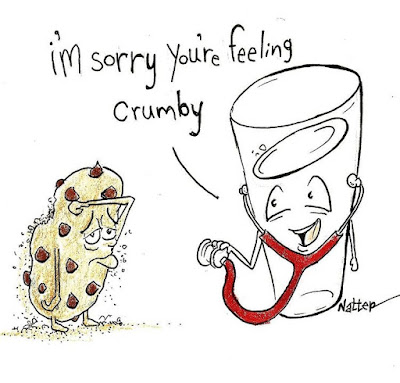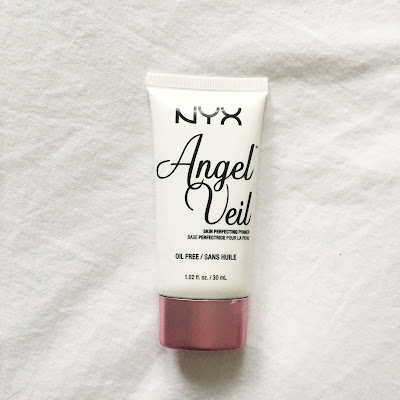Hey Mike! Thanks for being here to answer some questions. I’ll start off my letting you introduce yourself.
Mike: Oh boy, that’s a tall order. I’ll give you the short of it. I’m Michael Natter. I’m 31. I’m a New Yorker, and I’m a Type 1 Diabetic of almost 23 years, and I’m a newly-minted doctor. I’m in my Internal Medicine Residency at NYU, and I’m also an artist.
When did you decide you wanted to be go to med school? Was that your childhood dream, or anything close to this?
Mike: Okay so, we’re digging in, Michelle, we’re digging in. So yes, and no. So I grew up in New York, and things that came more naturally to me were more of the arts. So I was much more inclined to paint and draw, to write. I was good in history and that type of stuff, the humanities. I was god awful at math and science, like, truly horrific. There were no doctors in my family, no real science in my family, and I was much more someone who could pick up a crayon, and I would shy away from the math textbooks. And so my whole life, I was kind of shitty at math and science. So I kind of geared more toward the arts.
Then when I was diagnosed with Type 1, I had just turned 9 years old, and as I’m sure you can relate, and most people who have Diabetes can relate… when you’re diagnosed with Diabetes, something that once was this automatic, unconscious process that your body was doing for you, has now become your full time responsibility. And in that shift of taking on this newfound responsibility, I gained this really deep appreciation for what medicine was, and what biochemistry was, and what things were happening in our bodies. Like a beautiful symphony of chemicals, and enzymes, and molecules, and it’s like “Holy shit. All of this is going on inside of me and I had no idea and now I have to take care of it”, and now as a grown man who’s a physician, who STILL struggles to maintain my blood glucose, it’s a really tall task to deal with.
So I got this window into physiology, and it made me fall in love with what was going on. I was really fascinated by it. So at that age I was always kind of interested in medicine, but because of my academic weaknesses, and my other strengths, I never really considered it as an actual possibility. And recounting of when I was growing up, you know growing up in New York you’d take the subway places, and I would be in the subway in high school or whatever, and I would see people in their short white coats, I’d see people in their scrubs, and it would be like seeing an astronaut. And you’d have this sense of just awe and admiration of like, you want to aspire to be like them. You want to be that astronaut. But you also know that you will never be that astronaut. So for me it didn’t even seem in the realm of possibilities.
So I went ahead and I ended up going to Skidmore College in Upstate New York, because they had a very strong art program. And I went there mainly for that. So I went to study art essentially, and I would draw these large naked women in charcoal and bring them home on my vacations and my parents, who were funding my college tuition, were like “Honey, come on, like forty thousand dollars for you to draw a pair of tits.” And I had to kind of reassess. So I reassessed, and I started studying neuropsychology, because I became very interested in the brain. I found a mentor within the neuroscience department who saw my interest, who saw my potential, and kind of took me under his wing. And it wasn’t until that part in my academic career that I had gained some academic confidence in myself. And I had this epiphany at the end of college that I wanted to go to med school.
How did you get through med school? Was it harder getting through med school and managing your BGs at the same time?
Mike: Yes, so, I was was never one of those diabetics whose A1C was always like 6.0 all the time, and you know, I always struggled, my blood sugars would fluctuate quite a bit in every environment that I was in. So med school being a very stressful, difficult environment, you kind of lose your autonomy of your time. You might be in the hospital for 8 hours, or you might be in the hospital for 24 hours, and sometimes you don't know. But how I got through med school academically was through my art. I drew everything, and by drawing everything, not only did I kind of make the material my own, but it made it a lot more enjoyable.
Now I ask every person with Diabetes that I interview this question; Favourite low snack?
Mike: I have this issue of when I’m low, I get these pregnant lady cravings, and I just shovel things into my mouth. I tend to have a craving for chocolate, so anything chocolaty is kind of my go-to, even though chocolate’s probably the worst thing to eat when you're low because it has all that fat.
Are you a pump user, or a Dexcom user?
Mike: Yup, I’m using the new Medtronic pump, and I’ve got my Dex.
Did you ever consider endocrinology as a specialty? Or do you deal with enough of that on a day to day basis?
Mike: That’s my plan! I want to be an endocrinologist. That’s what I’m planning to do.
Do you think having a chronic illness yourself will make a difference in the way you treat your patients compared to doctors who have never been through it?
Mike: I absolutely do. At least in America the training process is so crazy, and the volume of patients that you see and how sick they are, we’re overworked, and it’s very easy to become desensitized to the patient suffering. And it’s also very easy to kind of write patients off, especially their complaints about what’s going on. So being able to relate to them is huge.
Your Instagram is full of incredible anatomy art. Did you draw as you learned in school? Is that how you studied?
Mike: Yep, you got it. I mean, it’s two-fold. So I like to draw, just to draw, and the long detailed drawings that took longer were not necessarily done in med school and to study, they’re more for fun, and for aesthetic purposes, and for commissions, and stuff to hang in my house. But the large majority of what I’ve posted over the last 4 years is for medical school, and to help me learn. I never considered myself intelligent, so you know, when I was learning very complex things, the only way that I could understand them is if I broke them down, and explained them to myself in very, very simple terms.
In medical school, do they still teach something along the lines of “If you hear hoofbeats, look for horses, not zebras”?
Mike: Well in your case you’re quite a zebra. They do teach that. That common things are common, and it’s funny you say that because I have a penchant for zebras. I find that the sexy parts of medicine to me are the Sherlock-Holmes-y, detective things. And so I seeing a patient before they open their mouth, by looking at them and figuring out what’s going on with them. And there’s a handful of very rare diseases that if you could pick up, you’re like a superstar, because no one thinks of them. I’ve gotten into trouble though because medical education is so structured and so hierarchical that every way you talk about things is kind of algorithmic. So I would go see a patient, and the attending physician would say, “What’s your differential diagnosis?”, meaning what’s the list of most possible to least possible things this person has. I would always throw too high up on my list, you know, “Stiff Person Syndrome” “Pheochromocytoma” “Multiple Endocrine Neoplasia”, and they’re like, “There is no way this person has any of those.” So yes, they still teach that. And when you're dealing with a volume of patients, more often than not, 95% of the time, it will be the common thing.

I had a very finding out what was making me sick. At first my GP would blame my depression or anxiety. Then blamed deconditioning, and so on and so on, when my basic tests were normal. Because how can a vibrant young girl be sick? Turns out, I have quite a list of doctors to go back to and let them know what they missed. And I know way too
many people with the same story. With that being said, I have two questions.
Do you think patients are judged on their age, appearance, and possible history of mental illness?
Mike: Sadly, I think they are. And I think that the problem is medical education. Because we are taught based on multiple choice exams, and multiple choice exams kind of push doctors to learn by pattern recognition. And pattern recognition also relies on demographics. Demographics being.. before I even finish rest of the question on the exam if it says “Middle-aged African American woman with joint pains”, I’m already thinking “Sarcoid and Lupus.” So these are the things that they just try and shove into your brain. Or like “Young white caucasian female with headaches and vision issues”, you’re thinking “Multiple Sclerosis.” So these are the ways that they teach us because there’s so much volume of information, it’s almost impossible not to use those patterns. And I think for 70% of the time, it’s good. It helps you. But then those people who fall through the cracks, those 30% of people, are getting judged by those types of things.

What do you think is the best way to make complex patients feel heard?
Mike: So I think patients are patients, and patients are people, and like any person, they literally wanna be heard. There’s data that shows physicians will interrupt their patients in seconds when they walk into the room. I make an effort to sit down. And I think that’s also something a lot of doctors don't do and there’s data that shows that if you spend the same amount of time with a patient, and in one instance you’re sitting and in one instance you’re standing, the patient perceives you as being in the room longer. So I make a real effort to sit in the room, and I make a real effort to ask how they're doing, and ask open ended questions and let them talk and tell their story.
Thank you Mike for the great interview! You can follow Mike and his cool drawings on Instagram @mike.natter
















































